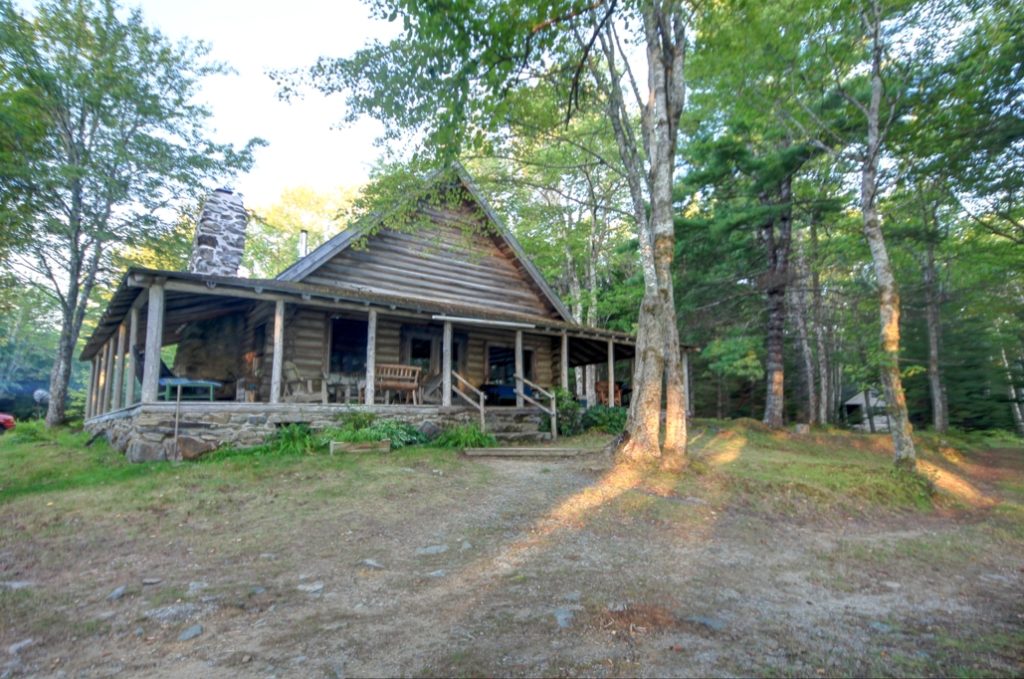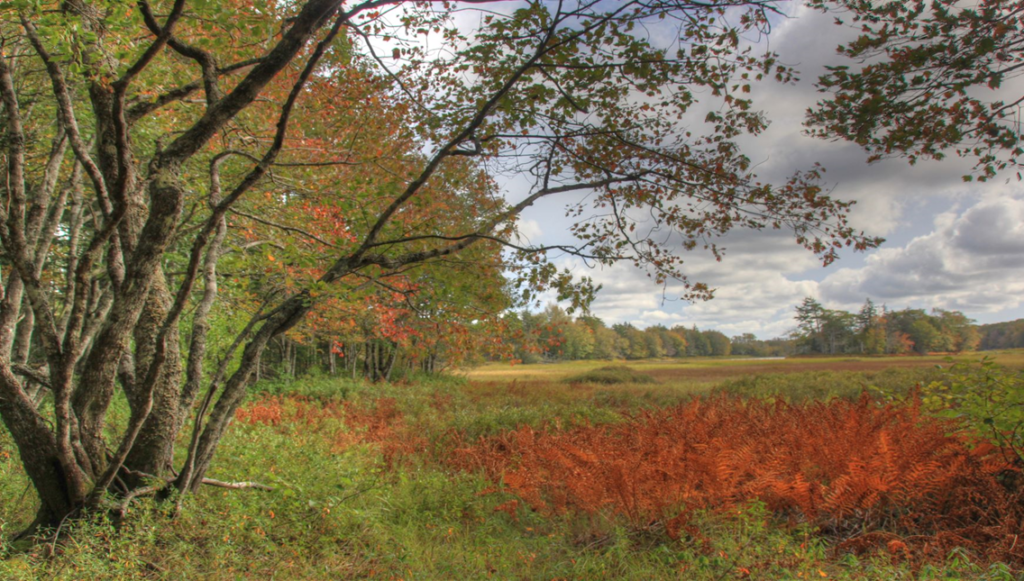In less than three weeks it will be summer. Last I knew, it was winter. Or so it seems. Methinks that time thieves are on the loose again.
The good news is that I’ve been preparing to give a workshop for the Writers Federation of New Brunswick via Zoom titled The Power of Prompts. Just revised the ppt presentation for the nth time. I’m excited! (And, gulp, it’s today!)

I’ll be giving a similar workshop as part of the Birchdale Writer’s Retreat later in August that Heather White and I host here in SW Nova Scotia. (Lodge and log cabins; no electricity, phones or Internet!)
Heather’s leading a session titled “How to Evaluate Your Work.” If memory serves, this is our 7th year. The retreat is really unstructured save for the workshops, mentoring and group yaks about the writing life (all optional), so there’s lots of time to write, read, sleep, paddle, take photos or do nuttin.’ One thing we all do is eat well.
Back to prompts. I recall a guest post Ginny Boudreau did here on that topic two years ago (May 2, 2020) … how using prompts can release our creativity and provide fodder for story. Worth backtracking to read, as Ginny’s had several poems and CNF pieces—birthed from prompts—accepted in literary journals. She’s such an inspiration.

Speaking of Ginny, we did a series of prompts last year based on the alphabet. A is for … B is for … etc. Individually we’d come up with a bunch of words for a letter, select one, and fly with it. Then we’d share what we wrote.
Many of my alphabet stories were silly ditties like this one:
P is for potty-mouth
“Swears like a pirate.” That adage would have been an apt description of me in my twenties. Not sure why pirates got such a bad rap. In fact, I doubt that they lowered themselves to my standards which at best could be understood as potty-mouth. Of course, I could also be Saint Sandra and keep my words as clean as Kleenex. The odd thing is that I objected to other people swearing—yet it seemed OK for me to sling obscenities.
* * *
…. Gets worse from there. Ugh.
But, once in a while, a gem surfaced. For example, when I saw the letter W, Whiff came to mind and a couple of scenes popped into view. Kaboom! The story pretty well wrote itself. Short piece hovering around 245 words. Here’s my latest revision. (No doubt there will be more, but I think it’s a keeper.)

Whiffing
The musky Eastern Hay-scented Fern along the path between the meadow and the meandering river reminds me of my father. He is smoking a pipe in the den, reading an Ellery Queen Mystery Magazine.
Papa is short and stocky, with thick black hair parted down the middle. His bushy mustache always looks lopsided—like his life. A well-loved surgeon who performs miracles in the operating room, he’s also a crack deer hunter, loves smelly Stilton cheese … and cheats at poker.
My father smokes a pipe, preferring Field & Stream —the woodsy blend of Cavendish and Virginia tobaccos he discovered after returning home from the Second World War. Papa’s also partial to Absolut Vodka. In a drunken stupor, he grabs my braids and throws me against the kitchen wall. Or so I’m told. I have no recollection of this scene at age three—only the lingering aroma of his pipe.
Another day, another walk, another scent of smokey crushed hay. I inhale the past and recall my sixteenth birthday. Mama gives me a set of pearls. Papa presents me with a 16-gauge Browning shotgun, acknowledging my skill at Trap & Skeet shooting, a sport he introduced to me at age thirteen. Was the gun—something I’d yearned for—penance for the past?
I just turned seventy-seven. The heady smell of tobacco has never been as strong as this musky November morn. I stand still on the edge of the now-golden meadow, whiffing my father back.
* * *
I sent the latest version to Beautiful Things (River Teeth). It was rejected. But I’m not giving up on it. Recently, I went through the personal essays I’ve written over the past couple of years. I have about twenty ready for submission, varying from 250 words to 4000 words. Around eighty percent pf these stories evolved from prompts. Now the challenge is to find the right literary markets and submit!

Sandra. Just as COVID started, you sent me a list of prompts from Nathalie Goldberg. Since then, I have followed them to write my COVID memoir. It’s been a challenge and very much fun! I have a question. If I should ever publish it (probably never) are there copyright obligations?
Good question! I don’t know Susan. I would think that acknowledging that your stories came from her promopts (name her and her book) that you’d be OK. But that’s something to check with someone “in the know.” I can ask someone at WFNS.
And meant to add … THRILLED you used those prompts and wrote a COVID memoir. That’s really wonderful!
Sandra, I wanted to thank you for your Wordspring prompts workshop this weekend. I’ve been doing prompts for years in a writing group, and treating them like a crossword puzzle or a wordle game — Never to be taken seriously. When I did stumble on a worthwhile idea from a prompt, it just seemed a happy accident. It never struck me until your workshop that prompts could be a primary means of inspiration. Sounds silly in hindsight, I know. That epiphany alone was worth the whole weekend for me.
I was also interested to hear your advice re using lists of prompts — particularly., don’t cherry-pick from the list, but rather do each prompt in order. If I get your point correctly, this is to ensure the prompt drives new inspiration, rather than the writer looking for a prompt that fits a story maybe they already have. I have noticed that the weakest prompts for me seem to be lists of unrelated words — I find myself flitting from word to word without landing on anything. I wonder if this is a similar concept?
Anyway, great workshop and I left excited to start using prompts as a real writing tool. Thanks again.
Why THANK YOU Trent! Yes, each time I’m ready to do a prompt I grab one (STARTING FROM THE TOP and keeping true to the order) and copy/paste to a blank page and start writing. There’s not thinking involved. I’m not making choices and using my analytical left brain trying to decide what I’m going to write about or if I have a story or not before I put fingers to keyboard (or pen to paper). For me, that interferes with right side of brain. So I have the prompt at the top of my page and I start writing. There is only ONE TIME I couldn’t come up with anything. Zip. Nadda. And I wrote about how that felt. It was under 50 words. haha.
Not sure what you mean by “weak prompts >>> unrelated words.” If I looked at say five unrelated words and was expected to link them them into a story I’d be flummoxed. e.g cat forever tree soup pain …………….. well, nothing would happen for me! But most prompts I use push you a bit to get you going. e.g if they were:
1. tell me why you love (or hate) cats … or tell me about an incident you experienced with a cat
OR
2. what does the word “forever” mean to you (and why?)
3. Has a tree ever factored in your life? A specific tree or a forest of trees?
4. your favourite soup
5. Paint me a picture of pain.
I’m pulling these out of the sky. But for me, prompts are more than a single word or words. They are a NUDGE.
Mind you, using the alphabet to create words that become prompts might fall into that dead zone category but, for some reason or other, they worked for Ginny and me.
Hope this makes sense. Happy to carry on the conversation! And please let me know if you receive this reply. If I don’t hear back from you I’ll send this to your email.
Thanks Sandra. Maybe the NUDGE is the key concept. In our weekly prompts group our facilitator brings a prompt to the table (actually two… we write poetry for one hour & then everything else the next hour). Sometimes I find myself with nothing, and it’s often when the prompt is an unrelated set of words, which it sometimes is. Even if the direction is “use all, any or none of these” I find myself struggling with this kind of prompt. So when I can’t write from it I think of it as a “weak prompt”, though maybe that’s the carpenter blaming his tools.
The lists of prompts you gave us in the workshop all seem to have strong nudges. Every one I looked at brought something to mind right away. It’s got me wondering if good prompts have certain characteristics. In the ones you showed us I noticed a few things:
– They’re universal – everyone has a memory of the colour red. Everyone has one place they call home.
– They’re very concrete. Nuts, chocolate, math, a cup.
– They typically don’t drive the promptee into choices (This is the problem I have with word collections)
– They typically don’t drive the promptee to qualify their memories (“Write about a great book you’ve read” not “The best book
you’ve ever read”. I find the latter stalls me. I end up grading my books instead of writing.
– They’re open for lots of interpretation. Oh boy, could I tell you about the history of nuts in my life.